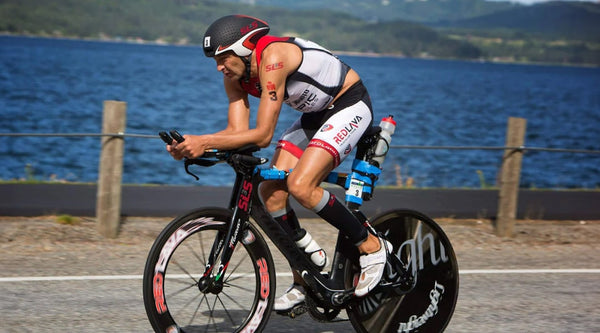Your Cart
You are $50.00 away from FREE SHIPPING
FREE shipping on orders over $50
30 day moneyback guarantee
No Fuss Returns

jim cissel September 05, 2023

When it comes to cycling, monitoring your power and training can have many benefits for triathletes. You need to better optimize the effort and time you spend on your training sessions. But which one of the two: Heart meter or Power meter should you prioritize in your training?
We’ll discuss both in detail, how they work, and which one is the best fit for you.
A heart meter checks how fast your heart beats in a minute.
It's not hard to use and can tell you a lot about your body when you exercise.
Cyclists and triathletes must know how powerful they are during the training.
A power meter measures your actual output in watts, giving you a direct indication of the work you're doing on the bike
Think of it as a device that only looks at how much power you're using. It's like seeing how hard you're pushing the pedals and how fast the pedal is rotating.
Power meters give you more accurate, important hidden data that you need to refine your pacing and see how much power you are actually applying to the bike.
I’ve been a triathlete for the last 10 years and in my experience, as you attempt to improve as a triathlete, power becomes a better and important parameter to measure than heart rate. On a long cycle, looking down at my power is more inspiring than a heart rate. Looking down and seeing that I’m not pushing out my target watts forces me to work a bit harder.
Picking a heart meter or a power meter depends on what you want to achieve, how you train, and how much you want to spend.
Whether you choose a heart meter or power meter, remember to match your choice with your goals.
No matter what, understanding your tools helps you become a better triathlete.
You also need to learn how to apply these insights and data to your training to gain big and better performance benefits in road races, time trials, and triathlons
The goal is to get better every single day. Keep pushing and reaching for your best!

CEO, Avid Triathlete
Meet our blog writer and CEO, a true triathlon enthusiast who leads by example. With a personal best of 9 hours and 15 minutes in an Ironman and 9 full-distance Ironman finishes under his belt, he’s as dedicated to the sport as it gets. He didn’t come from an endurance sport background—it wasn’t god-given talent, but rather dedication and hard work that got him to this level. A passionate advocate for optimal nutrition, he’s focused not just on performance but on a healthy, balanced lifestyle. As a father of two boys and a husband, he knows the importance of juggling family, business, and endurance training—and his insights reflect that balance.